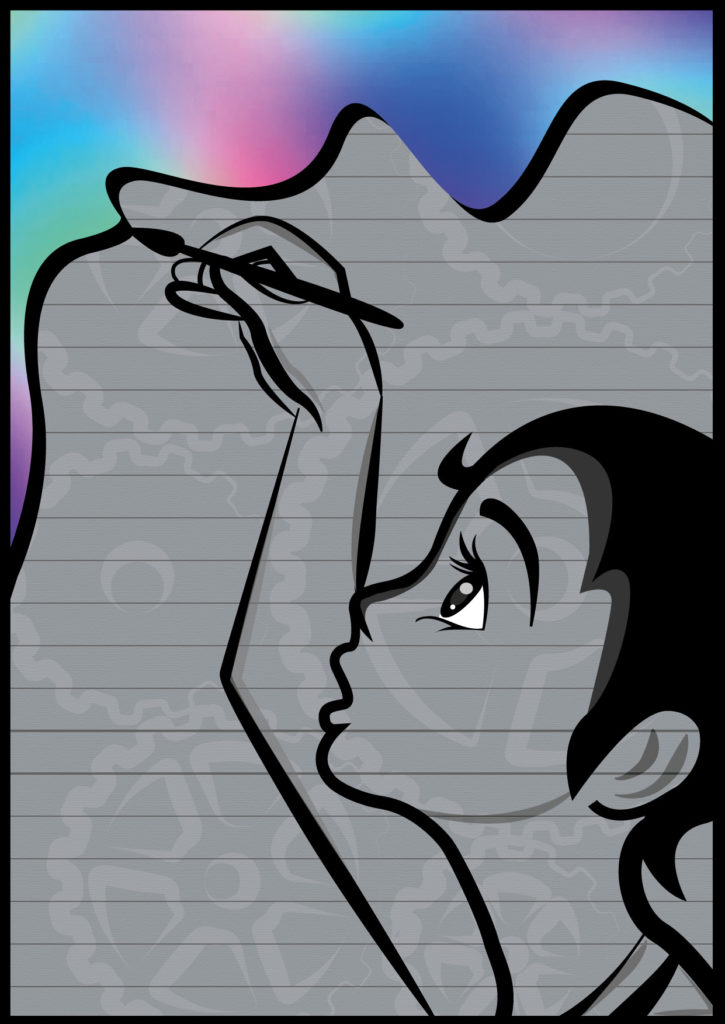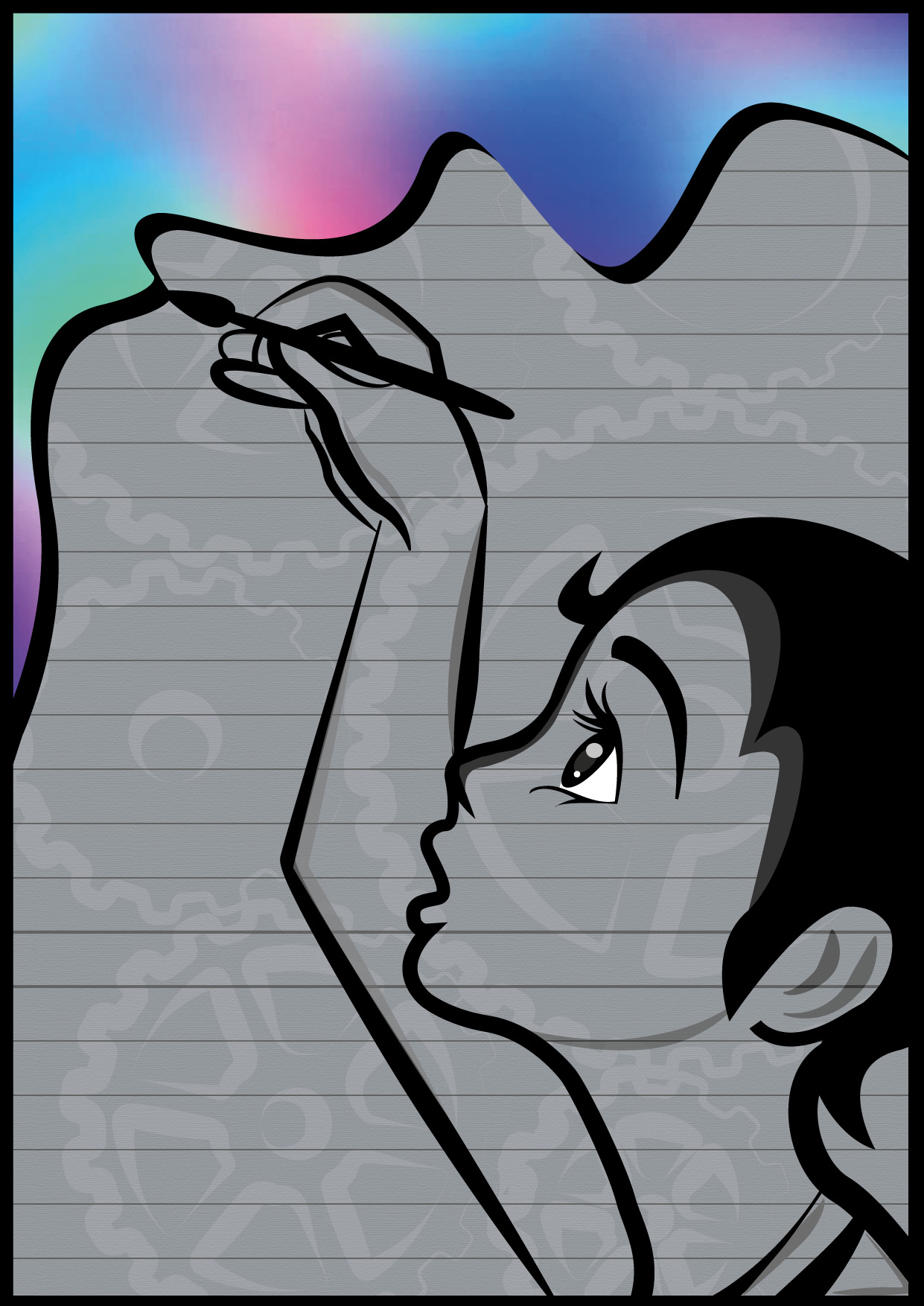
“Joel #556, you are now to partake in a state-recommended nap. Proceed to close your eyes,” said Ms Carol #325. Joel #556 duly complied. Deep down, however, he didn’t want to take a nap. In fact, he didn’t want to be at school in the first place.
Joel #556, or just ‘Jo’ to his friends, always had a rebellious streak in him. He had heard of how Joels #455, #371, and #231, (his father, grandfather, and great-grandfather) had all worked at the gear factory after finishing school. Jo hated the idea of working at the gear factory. He had seen his father struggle to make ends meet, but surprisingly never complain about it.
Jo lived in the aptly named town of Gearville, known for its high-quality gear factory. The city made bevel gears, worm gears, gears for clocks, watches, toys—if you could think of it, chances are that it’s made in Gearville. It all started in the 1850s when an enterprising young engineer named Joel Osbourne began making gears for nearby factories. His wife, Carol, was his pillar of support through it all. Joel quickly became the richest man in erstwhile Sand Springs, which was renamed to Gearville when he staged a brutal coup d’etat at the turn of the century and established his rule. Joel died a powerful dictator, albeit that of a small jurisdiction.
The people of this once-happy town centred their lives around work. A giant, rotating gear atop the town hall would serve as a reminder to the people of their work. Its hourly chime gave them a sense of urgency. Joel Osbourne had decreed that his iron-fisted rule would only end when this gear would break. He designed it himself, after all.
Every building was dull grey in colour. Years of neglect and torrential rain had left these structures with black streaks running from the top to the bottom. Jo hated looking at these buildings. He felt suffocated in this morbid town. He made his way back home, in a silent, straight-line procession to the designated residential area of town. All the roads intersected at right angles and felt like they led nowhere. Jo wanted adventure; he wanted to see what was beyond Gearville but felt lost in this maze of grey buildings.
Motivational posters lined the walls along the pavement. They had images of hard-working men and women toiling away at the factory, and captions like: ‘You know what grinds my gears? Not seeing you at work!’
Jo had learned to ignore these and quietly made his way back home along with hundred-odd classmates of his. The systems in this town were such that one learnt to comply, and eventually happily did so. Income levels were stable and stagnant. Some people would earn the same amount of money throughout their careers, and not once complain. The gear moved on while life stood still in this queer town.
Most of the children had reached their homes by now. Jo’s house was at the end of the street, ‘Dwelling No. 56’, said the board outside his house. He stepped onto his porch when he found a small, black pocketbook beside the door. He picked it up and put it in his pocket. Inside, Jo’s mother, Carol, hugged him and asked him about his day.
“Same old. Our Mechanics teacher took three extra classes today to ‘prepare us for the factory,’” said Jo, forgetting his curiosity about the pocketbook.
“That sounds tough, but I guess you’ll need it. It’s your final year of school, after all!” said Carol.
Irritated but careful not to betray his feelings, Jo sat down at the dinner table. Dinners were usually just him and Carol eating silently, making the occasional small talk about the weather. Jo’s father would work late nights and was rarely ever back while Jo was awake. Inside, Jo would think of what the outside world would be like. He thought of tall, blue buildings, lush green trees, red post-boxes, and wanted to experience all of these things. Dwelling Number 56 couldn’t keep him for long. After dinner, he helped his mother with the dishes and went upstairs to his room.
Tired from an especially long day at school, Jo decided to rest for a while on his bed, but he felt something dig into his left-side. He was reminded of the curious book he’d found outside. He set the pocketbook on his table and opened it. It had a little inscription on the cover that said ‘J.O. 1847’. The first name had to be ‘Joel’, he thought to himself. He opened the little book and read the first page.
‘For Carol, my rock, my pillar of support,’ it said.
He flipped through the yellowed pages of the book. They seemed to fall apart as he touched them. There were some sketches of gear parts. ‘Must’ve been an engineer’, Jo thought, until he came across a series of letters addressed to one Joel Osbourne. Jo couldn’t believe his eyes. This was the man who built this town from the ground. The letters were little notes of motivation, maybe written to oneself in times of dejection. However, Jo was at odds with his perception of Joel Osbourne. It seemed as if a different man had written. The Joel Osbourne he knew of was a cold, stern leader. Jo hated what he stood for. But the notes in the book seemed different. One particular line caught Jo’s attention: ‘Never stop wondering. Let the child in you stay alive as long as it can. You are successful today only because you could dream in your youth.’
‘Why, then, were the children of this town deprived of their dreams?’ thought Jo. He was now deep into the writings of Joel. Joel was a happy man until Carol fell ill. He stepped up production at the factory to pay for Carol’s treatment, but in vain. The last entry in this pocketbook was from the day Carol died: ‘And so, the colour of my life is gone. Everything is insipid. I can only consider myself lucky to have been there for her when she needed me.’
The rest of the book was blank. The big gear had chimed thrice till now, meaning that it was almost time for the children of the town to sleep. However, Jo was inspired, and this inspiration demanded action. He reckoned that if Joel Osbourne made his dream of setting up an enterprise come true, then Jo could ‘see’ the outside world, too.
Jo climbed up a little stool to reach a shelf in his cupboard and brought his paints out. These paints had dried a long time ago, but it was nothing a bit of grease couldn’t fix! He found an old brush, that had been long unused, and decided to start painting. Jo was going to defy the system today. He was going to imagine.
He let his imagination run wild—paintings of trees, tulips, colourful buildings and striped lighthouses filled the once-empty pages. Jo had seen all these things a long time ago when he was taught about them in school, but his classmates had long since forgotten to dream. Jo hadn’t. He’d held onto his sense of wonder. It was almost morning now, and Jo reached the last page of the pocketbook when he heard a loud thud. He looked out of his window to see what it was, but the street outside was empty.
Jo shrugged it off and decided to go to bed. The next morning, his father burst into his room.
“Get up, Jo! The big gear has broken into pieces!” Joel #455 exclaimed.
“What! How? Can we go and see?” said Jo.
“Your mother and I are going to do just that. Come with us!”
The town hall had never seen such crowds in all its history. More importantly, Jo was pleasantly surprised to see his father so enthused for the first time! Thousands of people thronged the large building beside which lay the pieces of the big gear. These people had been emancipated all of a sudden. They were no longer bound to this system of oppression. The people decided to pick the gear up and keep it in the town hall as a memory of a different, more oppressive time. The city had changed overnight. The sky looked a little brighter, and so did the grey buildings lining the streets of Gearville. People were too occupied to think of how or why the gear broke. The elation in the town was overwhelming.
A year later, Jo (and his other classmates) became the first batch of Gearville High School to apply to college in over thirty years. No matter the result, the prospect of seeing the outside world excited Jo immensely. At home, Jo’s father would now be able to make it back home by dinner, and would genuinely be happy about his job at the factory. The town had changed. Grey gave way to a myriad of colours—everything now looked like a painting of Jo’s. The little black book that gave Jo the opportunity to dream had mysteriously disappeared. Jo wasn’t sad, however. A new life waited for him with its arms open.
The only thing that perplexed everyone in town was the sudden breaking of the gear. The engineers attributed it to corrosion, but Jo silently disagreed. It was the power of his dreams, after all.
Written by Avaneesh Jai Damaraju for MTTN
Edited by Naintara Singh for MTTN
Featured Image by Sara Dharmik for MTTN

Leave a Reply
You must be logged in to post a comment.